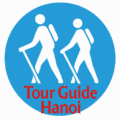Given the boom in the number of Chinese tourists in HCM City, authorities have been urged to take preventive measures against the so-called “zero-đồng” tours that cater to these tourists and adversely affect tourism revenue.
Since last year, the number of tourists from China has surpassed those from Japan and the US, according to the city’s Tourism Department.
Around 600,000 Chinese tourists visited last year, 200,000 more compared to the previous year.
In the first five months of the year, the city welcomed 3.2 million foreign arrivals compared to 2.5 million in the same period last year. Of the total, the number of Chinese tourists was 266,200, up 22.5 per cent year-on-year, said Nguyễn Việt Anh, head of the Department’s Travel Management Division.
Northeast Asia, including mainland China, Japan, South Korea and Taiwan, is expected to be the priority market for the city’s tourism sector in upcoming years, he said.
The department has targeted tripling the number of Chinese arrivals in two years to around 1.5 million.
However, tourism experts warn that the growing influx of Chinese tourists could affect the quality of tourism services, particularly the continued existence of zero-đồng tours.
Popular destinations in the northern province of Quảng Ninh, the central coastal provinces of Khánh Hoà and the city of Đà Nẵng are often filled with Chinese tourists on budget tours.
Cheap tour packages are aimed at budget Chinese tourists, with overseas tour agencies taking no fee for air tickets and accommodations, and then pressuring visitors into purchasing products or services when they are on tour, according to Từ Quý Thành, director of Liên Bang Travelink, which specialises in Chinese-speaking markets.
Some companies in Việt Nam, who operate in association with their overseas counterparts, run zero-đồng package tours, Thành said.
Visitors on these budget tours have to follow the agencies’ itinerary of tourist attractions, restaurants and shopping sites where they are often overcharged for products and services, he said.
Most Vietnamese travel agents based in HCM City understand the Chinese market well and have rich experience in tour operation and management.
They refuse to take part in these zero-đồng tours, Thành said.
Nguyễn Thị Khánh, deputy chairwoman of the city’s Tourism Association, said members of her association were not offering zero-đồng tours.
Travel firms in HCM City are focusing instead on high-spending Chinese tourists.
